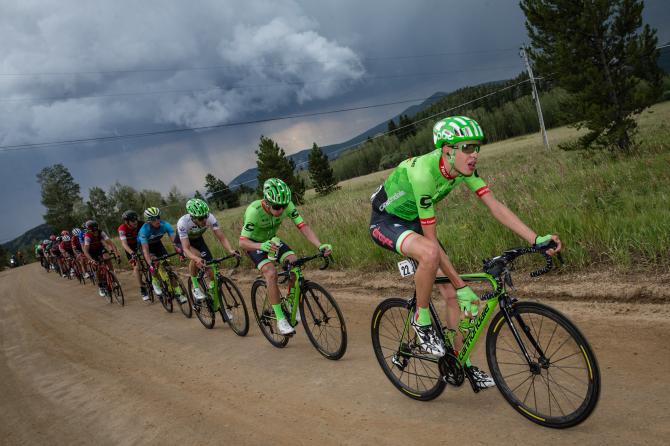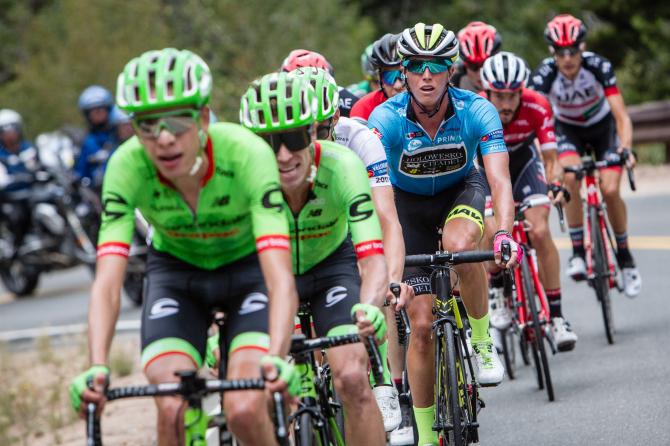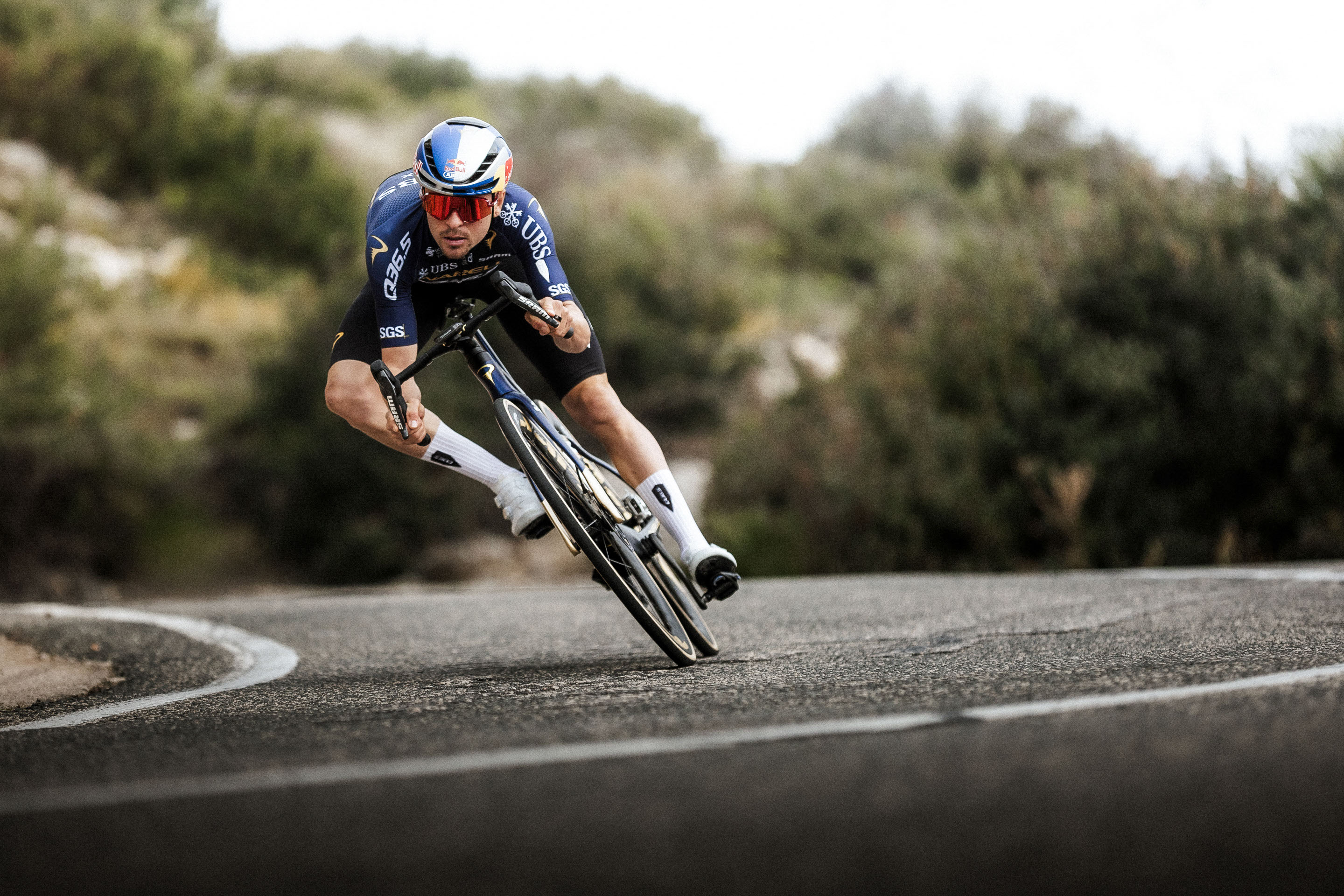Colorado Classic chaos scuttles Howes' hopes for overall win
Small peloton fails to reel in Senni, Tvetcov in Denver
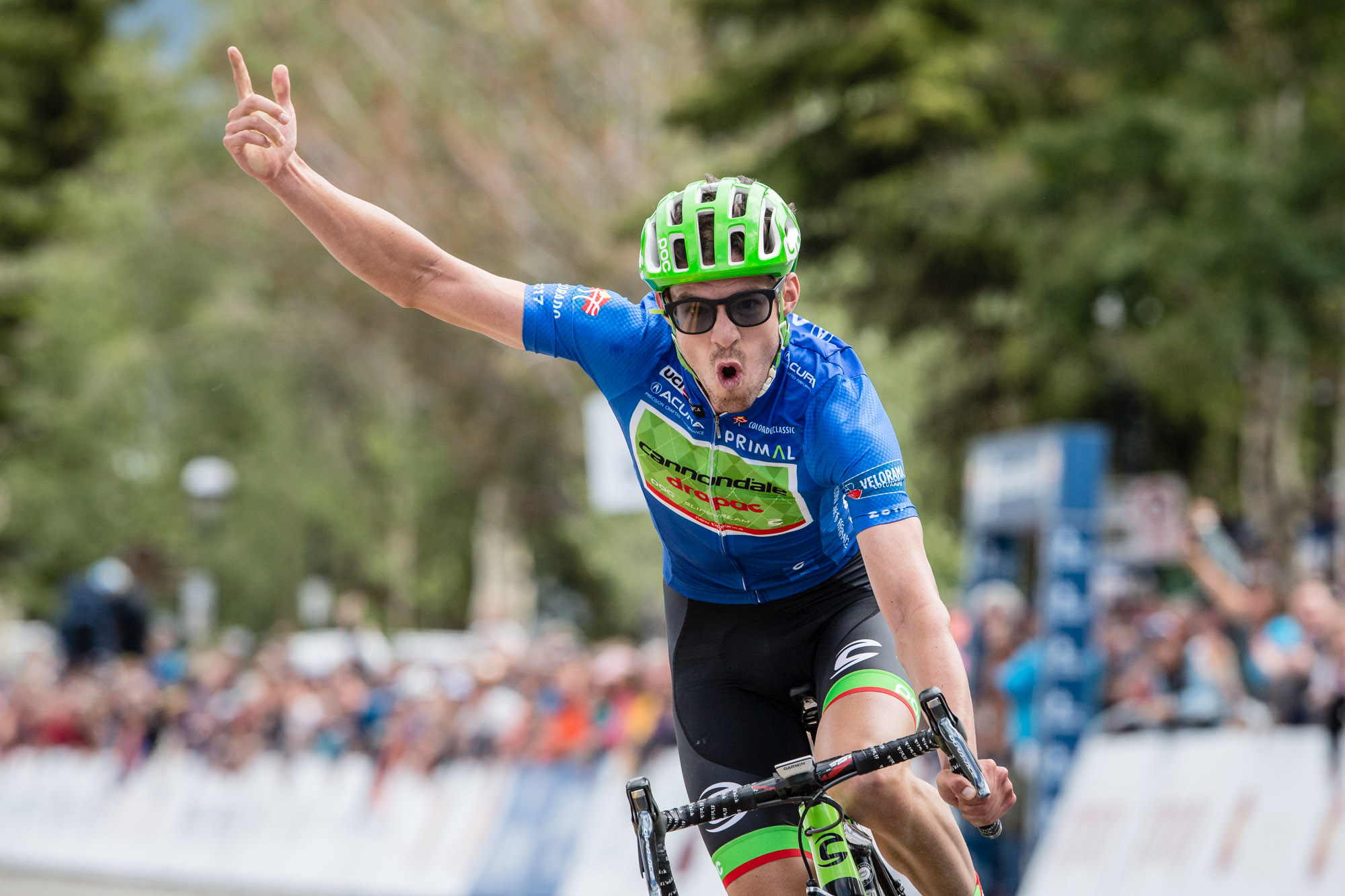
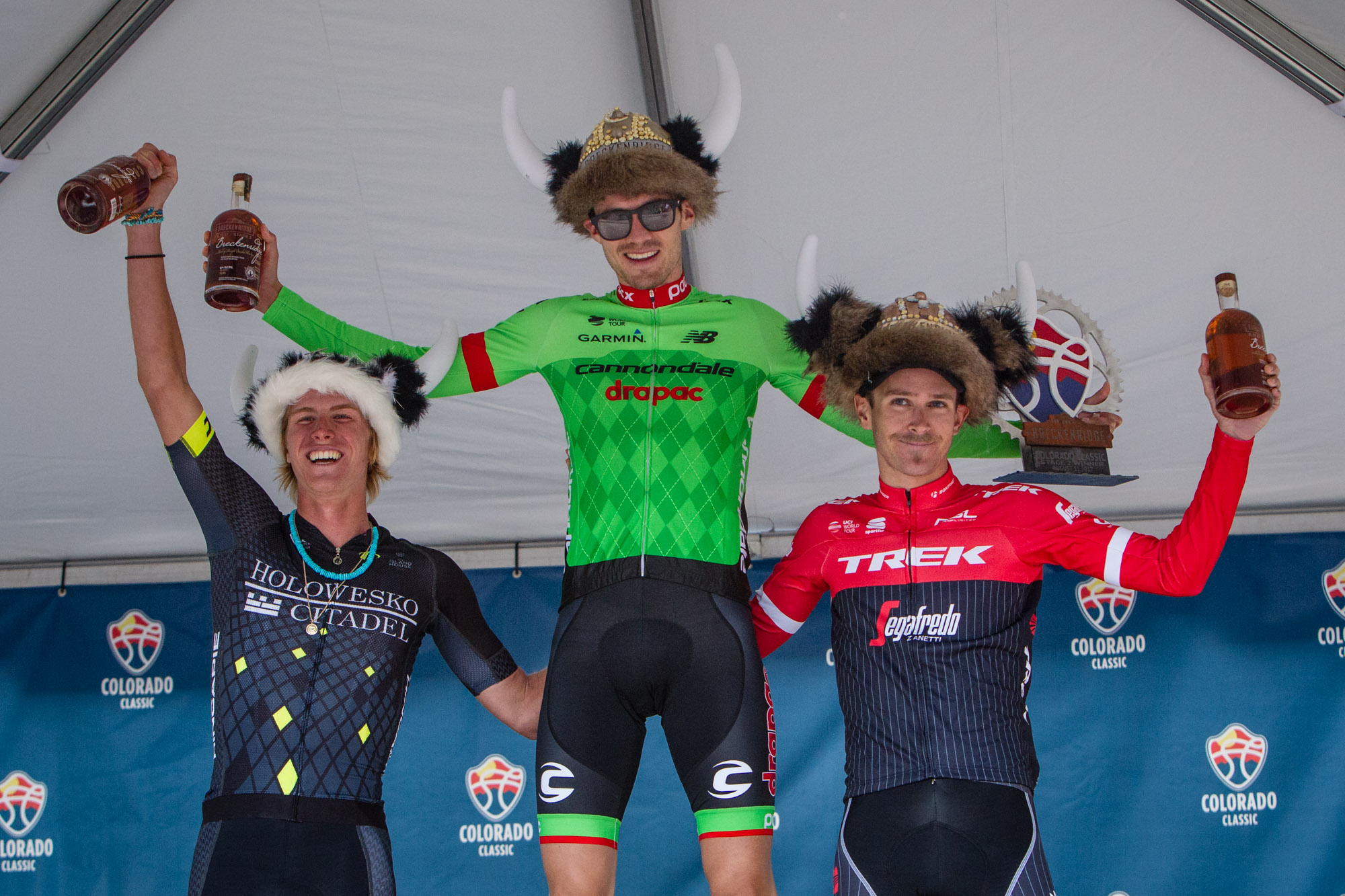
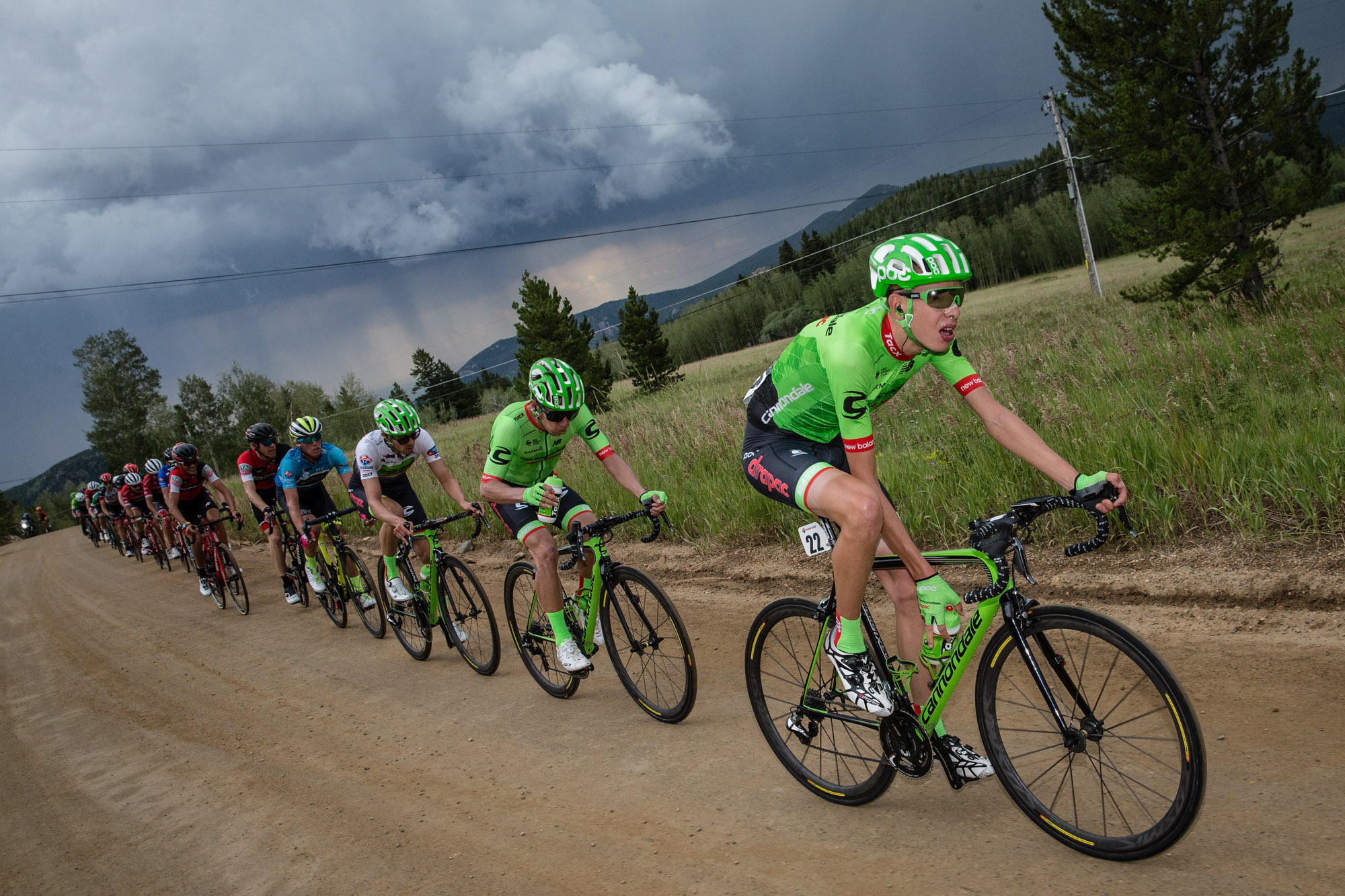
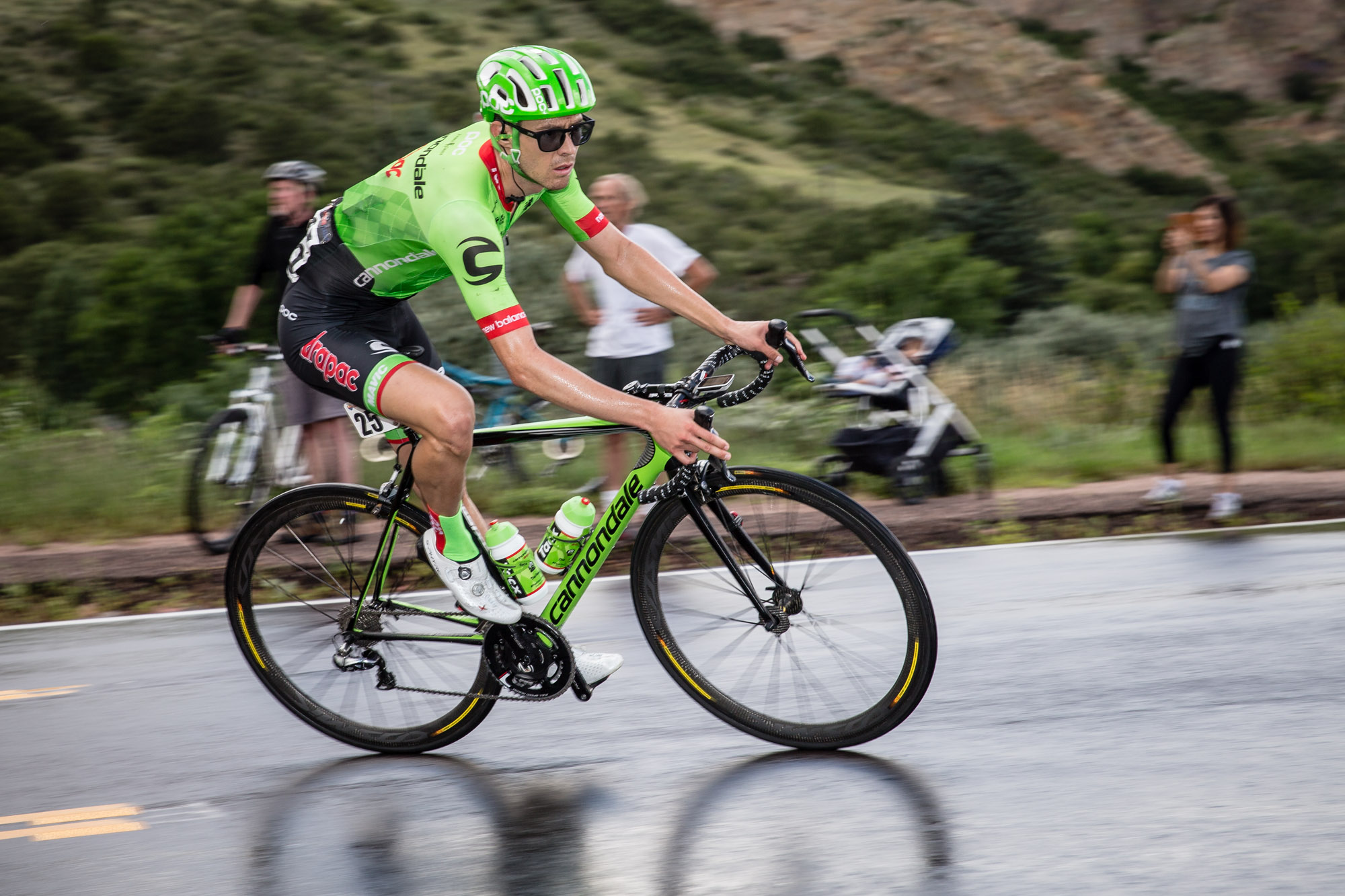
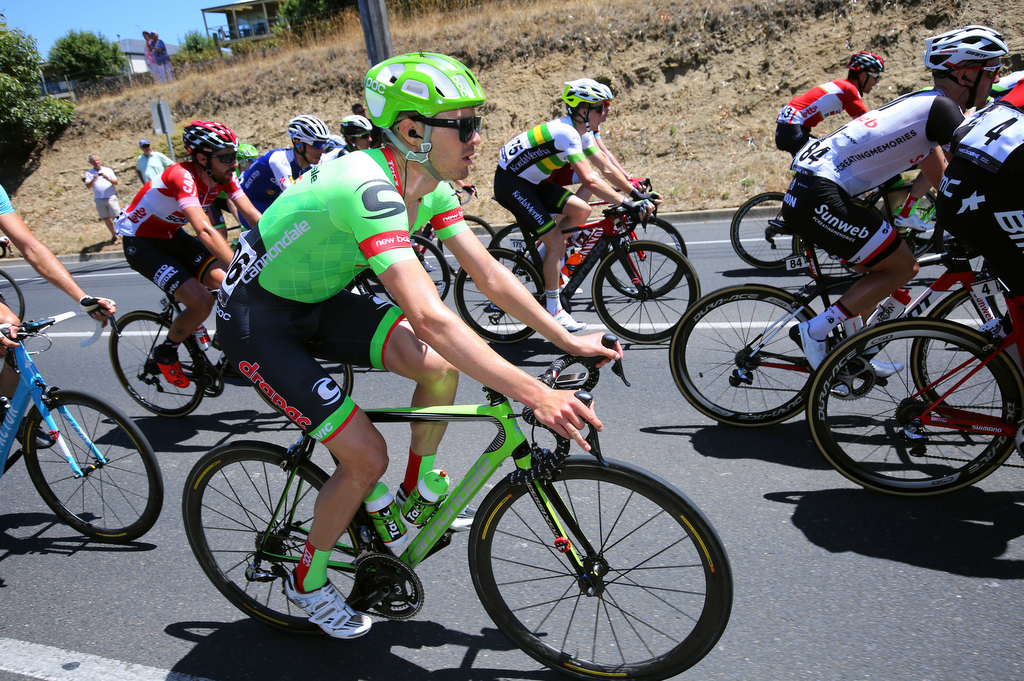
In a normal bike race, if a two-man breakaway has a minute with 30 kilometres to go, their chances of holding off the chasing peloton on flat roads without extreme weather conditions are slim. But the Colorado Classic is no normal bike race. Small teams, high altitude, cagey team tactics, communication difficulties and two strong riders all conspired to rip up the usual script.
Stage 3 in Denver began with neo-pro TJ Eisenhart (Holowesko-Citadel) leading WorldTour rider Alex Howes (Cannondale-Drapac) by a single second. The stage was only 128km heading out from Denver and back, over one massive mountain pass. But with 50km from the last climb, and a long, fast descent, the attack of Manuel Senni (BMC) and Serghei Tvetcov (Jelly Belly-Maxxis) should have been easily reeled in. The problem was, there were only 22 guys left in the chasing 'peloton', and the escapees stayed clear with a 54-second advantage at the line.
Senni claimed the blue leader's jersey by 15 seconds over Tvetcov, while Howes, aching to win in his home race, has been pushed to third at 31 seconds. Eisenhart, caught behind a small split and losing another second to Howes at the second intermediate sprint bonus, trails in fourth at 33 seconds.
How did it go so wrong for Cannondale-Drapac? They had high-calibre riders Rigoberto Uran and Hugh Carthy to pull back the leaders; it should have been no problem. Directeur sportif Ken Vanmarcke says they had no idea the gap had gotten as large as it had to the leaders until it was too late to bring them back.
"On the descent, it went wrong. The last time gap we got was 15 seconds, maybe 20, on the small uphill climb. We could see them. It was no stress at all. The guys were keeping them in the 15-20 second (range).
"Then it went down, and it started climbing, and it was one minute. There was no time gap given between, so it was suddenly one minute. We were already riding hard, but from then on, we went even harder. Some teams didn't want to work, and I still don't understand that."
Vanmarcke says he went to different teams and asked for help to reel in the attack. Trek-Segafredo had only Julien Bernard, and Pete Stetina, who had burned all of his matches attacking on the climbs. Bernard buried himself, but it had no effect.
The latest race content, interviews, features, reviews and expert buying guides, direct to your inbox!
"UAE had four guys there and didn't want to ride, which I didn't understand. They had a sprinter and could have won the stage," Vanmarcke said. "Nippo-Vini Fantini helped, but they didn't do it all at once. It was like – ahhhh. I was looking all the time for people to help. It's gambling but if you are 10km, 15km from the finish with [a gap at] 1:15, that's not gambling. It's just making a mistake.
"We did everything we could. Maybe our mistake was to let them have 15 seconds. At that moment, we had everything under control. Then there was a black hole of 10 minutes, 15 minutes with no information, and that's when they took a minute."
Howes himself couldn't fathom how the pair up front got such a big lead. "We had six guys swapping off, and they had 45 seconds and then the next thing we knew they had 1:20. We got it down to 55 seconds, and it just stayed there, even with them doing their monkey business at the finish. I don't know. I don't understand how they got the time."
The information coming from the race radio was hampered by a severe thunderstorm nearby, but not over the race, which forced officials to ground the fixed wing aircraft that relays the signal from the announcer. It meant that information was spotty on the long descent. But there were still 33km to go when they reached flatter roads, and knew that the leaders had more than a minute's advantage.
Not pegging them back was a "huge disappointment" for Howes. "You know when the two guys went, I could have gone, but I decided to stay and keep the team together. A couple guys on Trek were committed to chasing. A guy on UHC was committed to chasing. Nippo was committed to chasing. It seemed like the right thing to do, not to panic. If you do the right thing, you play it cool, and you get two guys that just leave six, I don't know. It's weird. I can't explain it."
No surprise for some
Losing a chance at the race lead might have been a disappointment for Howes, but Eisenhart actually lost the leader's jersey and three places in the overall standings. His usual relaxed demeanour had a more bitter edge to it after the finish, even if he said "It's all good."
"There was nothing I could do. I'm one guy out there, it's up to the WorldTour teams at that point," Eisenhart said of the chase. "All those teams had three guys up there. It was up to them if they wanted to keep it - they can't expect me to do all the work all day. I'm happy, I had a good day yesterday."
Sepp Kuss (Rally), who finished with Eisenhart and dropped to sixth overall, was also isolated and in addition, had used his bullets chasing Stetina when he attacked on the climbs and had nothing left to help even if he wanted to. "I figured Stetina would be the guy that was going to try to move up on the climb. So I followed him. I felt alright, but I totally came undone with 1km to go on that climb. I regrouped, got back to the chase group and we ended up catching the group that Stetina and Serghei were in. Then I was still pretty shattered at that point, and I think a lot of other people were too."
Travis McCabe (UnitedHealthcare), who won the sprint for third, said his team wasn't contributing fully to the chase because when the gap got large enough it was on the GC teams to bring it back. His team has another shot for a stage on Sunday's short, flat circuit in Denver.
"We took a stance where we weren't going to ride because the gap got out to 1:30 after the KOM and it became a GC day. Cannondale rode super hard up the climb in an attempt to get rid of most of the sprinters, thinking it was going to be a sprint day for Alex and it kind of backfired for them. It forced them to chase. We took a step back and said 'we have another day tomorrow, we're not going to put too much effort into it'. After 10k to go, when they still had 1:10 we knew we were racing for third."
Call it a mistake, call it a gamble, but it was a gross underestimation of the quality of the two riders out front. Senni - who's spent numerous days off the front of races and was third overall in the Volta Valenciana this year - and Tvetcov, who was third overall in the USA Pro Challenge in 2014 and knows the roads well, were simply flying on the descent and kept their advantage heading into Denver.
"We got to the bottom and it was a headwind, but then we turned into a tailwind. We knew it would be good for us," Tvetcov said. "Then the gap was holding pretty much the same."
The pair entered Denver's RiNo district with plenty of time to decide on how the finish would play out. Senni gestured to Tvetcov as they entered the home stretch to take the lead. Tvetcov kept checking back to make sure the Italian wasn't going to sprint, but it was a gentleman's agreement: Tvetcov got the stage win in exchange for helping Senni take the race lead.
Jelly Belly team manager Danny van Haute was beside himself with glee at the result, but said it was never in the plans. "He did it on his own. The plan was to get in the break and win the KOM jersey. We never thought that we were going to win the stage, that's just a bonus for us."
They wanted Tvetcov to attack to get the mountain points, because he stood a good chance at taking the jersey, which he did. "We knew TJ wasn't going to race for it because he's in the race lead," Van Haute said. "And the other guy, Senni, he was trying to get some points. Then he got dropped and then it was just four guys on that first climb, and he was the only guy who really had a lot of points. Then on the second climb, Senni attacked and Serghei went with him and that was it. Ballgame over. Winning the stage was just a bonus. Continental team does it again."

Laura Weislo has been with Cyclingnews since 2006 after making a switch from a career in science. As Managing Editor, she coordinates coverage for North American events and global news. As former elite-level road racer who dabbled in cyclo-cross and track, Laura has a passion for all three disciplines. When not working she likes to go camping and explore lesser traveled roads, paths and gravel tracks. Laura specialises in covering doping, anti-doping, UCI governance and performing data analysis.
